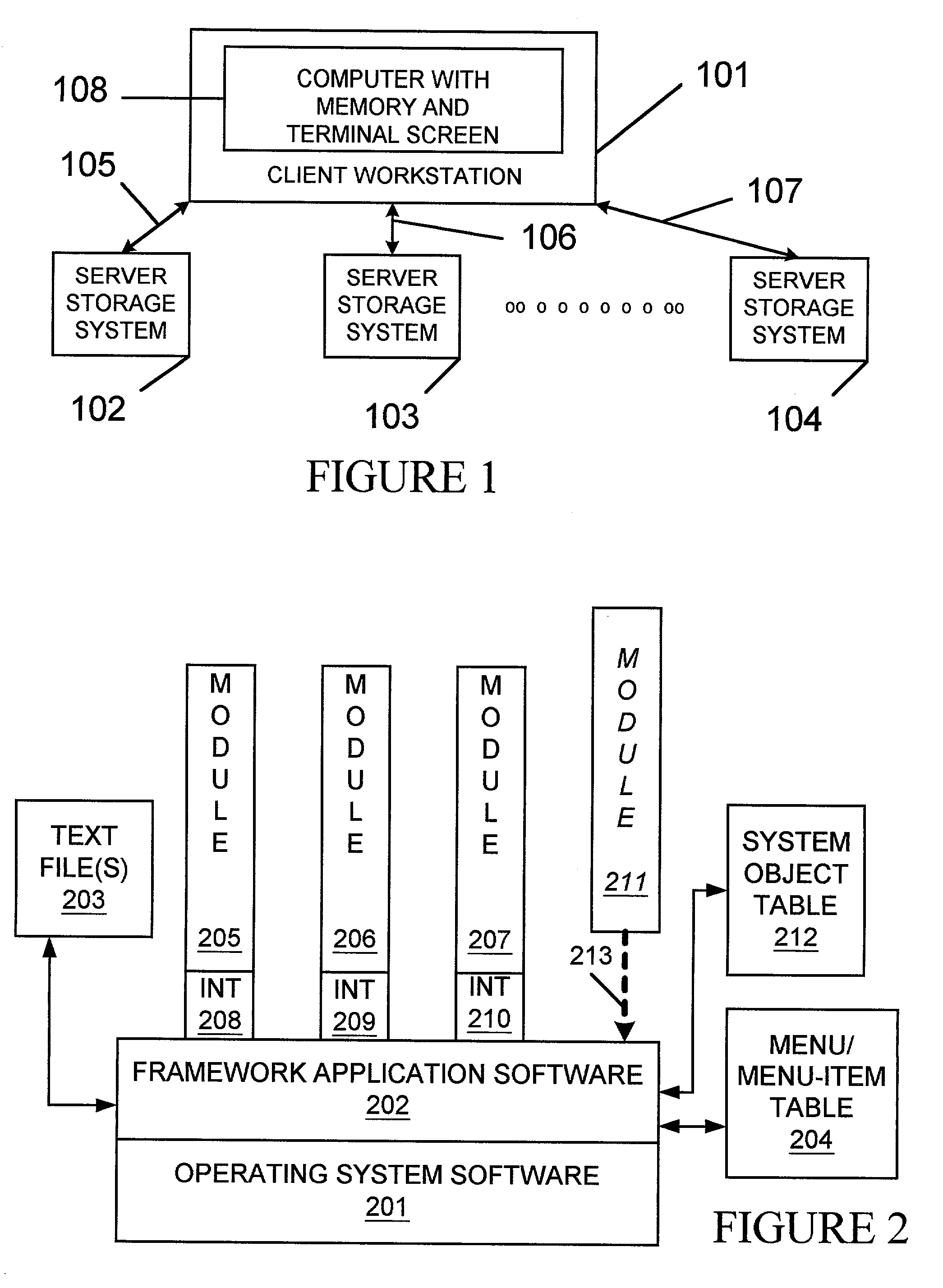Plug and play interface for user actions
a user interface and plug-and-play technology, applied in the field of plug-and-play technique of manifesting a gui, can solve the problems of long development time, affecting other parts of the code, and virtually impossible to add functionality on an as-needed or as-requested basis, during the development cycle or thereafter in response to developers' or users' desires
- Summary
- Abstract
- Description
- Claims
- Application Information
AI Technical Summary
Benefits of technology
Problems solved by technology
Method used
Image
Examples
Embodiment Construction
[0028]Referring to FIG. 1, there is shown a block diagram of a client-server network of the type in which embodiments of the present invention can be particularly useful, although it must be understood that embodiments of the present invention can be useful in any context in which a GUI is used. Client workstation 101 contains a computer system 108 having a memory and terminal with screen. The GUI, typically includes terminal, keyboard and mouse (not shown) through which a human user can interact with the network. Client workstation 101 is connected to server and storage systems 102, 103 and 104 via bidirectional buses 105, 106 and 107 respectively. The dots between storage systems 103 and 104 are intended to imply that many more servers and storage systems can be operatively coupled to the workstation, but are not shown herein for purposes of enhancing clarity of presentation. Embodiments of the present invention are contained within client 101. A contex...
PUM
 Login to View More
Login to View More Abstract
Description
Claims
Application Information
 Login to View More
Login to View More - R&D
- Intellectual Property
- Life Sciences
- Materials
- Tech Scout
- Unparalleled Data Quality
- Higher Quality Content
- 60% Fewer Hallucinations
Browse by: Latest US Patents, China's latest patents, Technical Efficacy Thesaurus, Application Domain, Technology Topic, Popular Technical Reports.
© 2025 PatSnap. All rights reserved.Legal|Privacy policy|Modern Slavery Act Transparency Statement|Sitemap|About US| Contact US: help@patsnap.com



